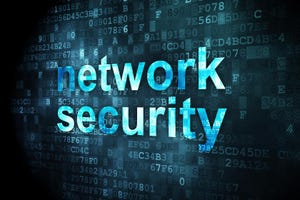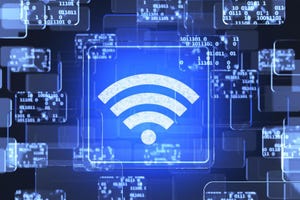Are VoIP 911 Problems Life-Threatening?
Voice over IP and cell service can't be relied on for 911 calls. That means that ripping out your conventional phone service could be a dangerous -- even deadly --
March 30, 2005

Not long ago a tragedy happened during a home invasion robbery in Texas. An elderly couple was attacked and nearly killed while their daughter, hiding in an upstairs room, frantically dialed 911. What she got instead of the lifesaving help she needed was a recording saying that the service wasn't available.
Welcome to the world of Voice over IP.
When four hurricanes in a row smashed into Florida last fall, cell phone service went away almost immediately as towers fell, others were left without power and what few cells remained operational were being used by emergency services. Ordinary citizens were unable to make cell phone calls, even if they needed to call for help.
|
|
|
Welcome to the world of cell phones.
Of course, cell phones can also be very useful in emergencies, such as when callers see a crime or other emergency in progress and call the authorities. But what's important to know about most VoIP providers and most cell phone providers is that you can't count on them to deliver when the chips are down.
Before you rip out your POTS (Plain Old Telephone Service) phone line entirely and decide to rely on your VoIP and cell phone service exclusively, make sure you'll be able to dial 911 if you get into trouble.And think about leaving your POTS in place. Just for emergencies.
With that in mind, here are some things to keep in mind. The first thing is electricity.
Energy Crisis
Remember, when the power goes out, so does your VoIP phone service. Even if you're not using your computer for access to your VoIP line, the interface box on your house needs electricity, and when you lose that, you lose phone service. Of course, you can make sure you have a generator or a UPS to keep your service up and running, but by the time you pay for either of those, your savings by going with VoIP are pretty much eliminated.
Cell services don't have this problem unless the power outage is widespread and long lasting. The transmitters at cell sites usually have battery backups, and some have generators. They might last a day or two. Your cell phone has a battery, and if it's freshly charged, it will last even longer than the cell sites, but eventually both need to have electricity, and without it, they're dead.POTS isn't affected by power outages, and while your phone line might be taken out during a disaster or really bad weather, for the most part it's hardened against damage.
The 411 On 911
Even if your VoIP or cell phone is working, you may find yourself unable to call 911.
A POTS phone is designed so that the phone system connects you directly to an emergency operator who will instantly know where you are, and be able to hold the line open so that emergency workers can stay in touch. Unfortunately, these capabilities aren't as available for VoIP or cell phone users. Many VoIP services, including Vonage, perhaps the best known, do not give customers access to 911 service unless the customers ask for it. Even then, the calls are usually routed to a call center which then passes it along to the offices where the emergency workers are located. But it doesn't go to the 911 line; it goes to the office line. Your life-or-death emergency will be competing for phone time with emergency workers' business calls and phoning out to order pizza. You could easily find yourself reporting your emergency to a voicemail box.
Of course, some providers do give you 911 access as a standard feature, but you may still have to specifically tell them where the VoIP device is located. And you still may not get the 911 operator directly.The situation is a little better for cell phone users. Some services will route your call to the 911 operator, but location information isn't always easy to come by. The GPS chip in some phones won't work inside a building and may not work inside your car. Triangulation, while getting better, is far from perfect and may not work at all in many areas. So you'll have to provide the information yourself by telling the operator exactly where you are, assuming you know.
What To Do
If you feel you really must have VoIP, there are some things you should think about.
First, find out if the VoIP provider offers 911 service, and if it does, where the calls will go. Once the service is installed, try out a 911 call. Confirm that you can actually get through, and then find out where your call ends up. Make sure that the party on the other end gets your location data as well.
Second, consider keeping your POTS line for emergency use. Most phone companies have a limited service plan that's very inexpensive, but that can support 911 calls just fine. These may be called "measured rate services," and there is usually an upper limit to how many calls you can make without paying extra. Such lines are very inexpensive, so long as you stay within the limits. You may decide that the risks of VoIP aren't worth the modest savings of ripping out your POTS line.If you're installing a small-business VoIP system, you can ask your equipment provider to include the ability to automatically connect emergency calls to your POTS line. Virtually all IP PBX products have this capability, but like many things in VoIP, you may have to ask for it specifically.
Finally, if you do choose to change to a VoIP service as your exclusive means of access, make sure you tell visitors and family members about the limitations if there's an emergency. They should know, for example, that they're not being connected directly to a 911 operator, and should be prepared to tell the call center that gets their call where they are so that they can be connected properly. You might also suggest that they run to a neighbor's house to use the phone if they really have an emergency.
What's The Problem?
No doubt you're wondering why these phone services have this problem. The answer is both technical and political.
The technical problem, in short, is that it's difficult if not impossible to know where IP packets are coming from, at least with any degree of precision.Cell phones have less of a problem, what with on-board GPS and triangulation from cell phone towers. But the location-detection with cell phones is far from perfect.
The political reason has to do with the Federal Communications Commission, which has voided all state laws that would require 911 access for VoIP phones. The FCC has said that it will issue national 911 requirements, but nobody knows how long that might take. It's your government at work, so assume a decade if the wind is right and the road free from obstacles.
Fortunately, the cell phone industry is already under an FCC mandate to provide real 911 service. And there appears to be building public pressure to make the VoIP industry more responsive, and at least find a sensible way to handle emergencies. But for now think twice before giving up your plain old telephone service.
Wayne Rash is a writer based near Washington, DC. He was one of the first to create secure networks for the military and for other government organizations, and he has written about security for over twenty years. You can reach him at [email protected]. Contact the editor of Security Pipeline at [email protected].




